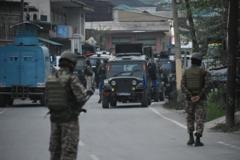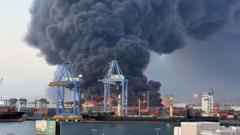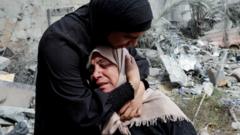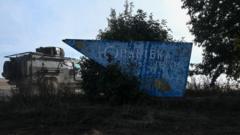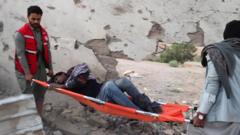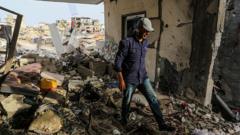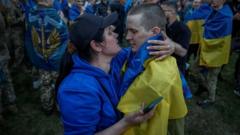The picturesque village of Sergele, a traditional farming community in Iraqi Kurdistan, finds itself on the brink of crisis due to Turkey's growing military presence and the ongoing conflict with the PKK, greatly impacting the livelihoods of its inhabitants.**
Life Under Siege: Villagers of Iraqi Kurdistan Struggle Amid Turkish Military Expansion**
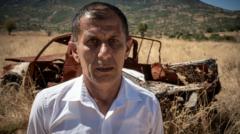
Life Under Siege: Villagers of Iraqi Kurdistan Struggle Amid Turkish Military Expansion**
Sergele village faces severe disruption as Turkey ramps up military operations, leaving residents in peril as they combat sequential drone strikes and land losses.**
Nestled in the scenic mountains of Iraqi Kurdistan, the tranquil village of Sergele is facing dire challenges as Turkish military forces expand their operations in the region. For generations, locals like Sherwan Sergeli and his family have relied on agriculture, growing pomegranates, almonds, and peaches. However, this peaceful existence is increasingly threatened; the village lies just 16 kilometers from the Turkish border and has witnessed a dramatic increase of military bases in the past couple of years.
Sherwan, a 50-year-old farmer, expresses frustration as he faces restricted access to his land, stating, “This is 100% a form of occupation of Kurdish lands. The Turks ruined it.” The once-thriving landscape, now riddled with silhouettes of Turkish military installations, threatens to envelop Sergele in what locals refer to as the “Forbidden Zone.” This area has become a battleground due to Turkey's long-standing conflict with the PKK, a Kurdish militant group fighting for autonomy since 1984.
Human rights organization Community Peacemaker Teams reports that countless civilians have been killed in drone strikes and air assaults within this contentious zone. A 2020 report revealed that thousands have lost their homes and farmland to the violence, with entire villages rendered uninhabitable.
Recent investigations have illuminated the scale of Turkey's military ambitions, with satellite imagery indicating the construction of 136 military sites across northern Iraq. Turkey's presence now extends across more than 2,000 square kilometers, with a network of roads paving the way for further establishment. This aggressive expansion corresponds to an increase in violence, with Sherwan lamenting, “The more bases they put up, the worse it gets for us.”
The adverse effects of the drone warfare are tangible on the ground. Farmer Salam Saeed, whose vineyard is overshadowed by a major Turkish base, has been unable to cultivate his land for three years, fearing for his safety. “The moment you get here, you will have a drone hover over you,” he explains, underscoring the precariousness of daily life. Residents of nearby Kani Masi have similarly fled, driven away as Turkish military strengthen their grip on the region, often accused of targeting civilians in their operations against the PKK.
While Iraq’s government has vocally criticized Turkey's military maneuvers, it has concurrently accommodated many of its demands, fighting the PKK jointly. This complicity arises from Iraq's dependence on Turkey for economic stability and security while the Kurdistan Regional Government has maintained a cooperative relationship with Ankara, often downplaying collateral damage from Turkish strikes.
Despite repeated calls for peace from the PKK’s leadership, violence continues to escalate in the region. Alan Ismail, a 24-year-old cancer patient, tragically lost his life in a Turkish airstrike, a stark reminder of the lives caught in the crossfire. His father, Ismail Chichu, voices the anguish felt by countless families affected, desiring recognition and accountability for their losses from local authorities.
As the conflict rages on, the future of communities like Sergele hangs in the balance, revealing the dire consequences of geopolitical strife on local lives. What remains to be seen is whether these communities can endure the relentless assault and unite for their survival as they navigate the precarious balance of power in Iraq's northern territories.







